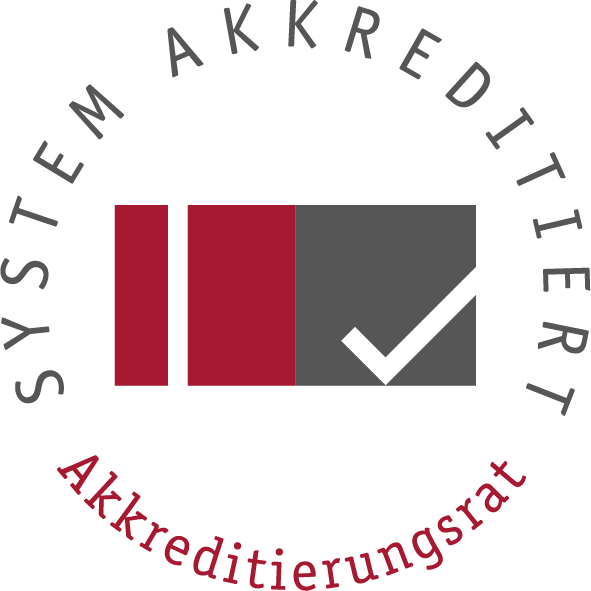Physics (M.Sc.)

Physics is a scientific discipline that explores the universe from its very largest cosmological scale to the sub-nuclear scale of elementary particles, from the synthetic materials of solid-state physics and materials science to the living systems in biophysics and medical physics. Modern physics is therefore best defined not in terms of any one specific area of interest, but by the approach it adopts to examine the universe around us. Using well-designed experiments and measurements and formal analyses, physics provides a means of developing an overarching understanding of natural processes.
The education in the Saarbrücken Master's program "Physics" includes modules with experimental and theoretical focus. Students also gain an insight into the content and methods of neighboring disciplines. Students learn about applications of physics in engineering or life sciences or in medicine in a non-physics elective.
The Saarbrücken master's degree program "Physics" is all about research. In their theoretical-physical education, students first acquire in-depth knowledge in the subfields of quantum mechanics and static physics. In the experimental part of the master's program, they work on more advanced concepts in solid-state physics and atomic physics. The master's program also includes the practice and application of modern physics methods in research internships and in the working groups. The master's thesis then deals with a current problem in biophysics or soft matter, solid state and nanostructure physics or quantum technologies.
The Saarbrücken Master's program prepares physicists for jobs in industry, research institutions or public institutions. The fields of employment include, among others, the area of research/development with a focus on natural and engineering sciences, e.g. biotechnology, environmental technology, energy technology, optics and medical technology or the area of universities and research institutions as well as the service sector, e.g. for strategic management consulting. Likewise, the field of information technology is an important part of the job market for physicists. Very good graduates can also pursue a doctorate and, if appropriate, an academic career.
Physics spans the world of the very largest, such as in astronomy, to the world of the smallest elementary particles, from synthetic materials in solid-state physics and materials science to living systems in biophysics and medical physics. Modern physics is therefore not defined by a particular subject matter but rather by its approach. Through targeted experiments and measurements as well as formal analyses, it develops a holistic understanding of natural processes.
Im ersten Studienjahr werden im Rahmen der theoretisch-physikalischen Ausbildung vertiefende Kenntnisse in den Teilgebieten Quantenmechanik und statische Physik vermittelt (Modul "Theoretische Physik V").
Im experimentellen Teil der Ausbildung werden weiterführende Konzepte der Festkörperphysik und Atomphysik bearbeitet (Modul "Experimentalphysik V"). Hierzu gehört auch die Anwendung moderner experimenteller Methoden in Forschungspraktika und aktuelle Projekte experimentell ausgerichteter Arbeitsgruppen.
Das zweite Jahr des Masterstudiengangs kann als Forschungsphase charakterisiert werden. Im dritten Semester werden die Studierenden speziell auf die Durchführung der Masterarbeit vorbereitet, die den Abschluss des Studiums bildet.
Der Saarbrücker Masterstudiengang bereitet Physiker und Physikerinnen auf Tätigkeiten in Industrie, Forschungsinstitutionen oder öffentlichen Einrichtungen vor. Die Beschäftigungsfelder umfassen unter anderem die Natur- und Ingenieurwissenschaften, die Lasertechnik und Medizin oder den Bereich der Informationstechnologie. Sehr gute Absolventen können außerdem eine Doktorarbeit anfertigen und gegebenenfalls eine akademische Karriere anstreben.
Admission requirements
Der Zugang zum konsekutiven Masterstudiengang Physik setzt voraus:
1. Einen Bachelor- oder äquivalenten Hochschulabschluss schwerpunktmäßig in Physik oder in einem der Physik verwandten Fach sowie
2. die besondere Eignung zum Masterstudium. Diese wird in der Regel festgestellt durch einen Bachelorabschluss mit der Gesamtnote 2,5 und besser oder einer Eignungsprüfung.
Für das Fachstudium Physik werden Fachkompetenzen in den Bereichen Mechanik, Elektrodynamik und Optik, Thermodynamik und Statistik, Atom- und Molekülphysik, Physik der kondensierten Materie, Kern- und Elementarteilchenphysik sowie Quantenmechanik vorausgesetzt. Die Zahl der erworbenen Credit Points in Vorlesungen und Übungen zur Experimentalphysik, theoretischen Physik und mathematischen Grundlagen sollte jeweils 30 CP nicht unterschreiten. Im Rahmen physikalischer Praktika sollten mindestens 20 CP erworben worden sein.
How to apply
Das Studium kann zum Wintersemester und zum Sommersemester aufgenommen werden. Die Bewerbungsfrist endet in der Regel am 1. September für das Wintersemester und am 1. März für das Sommersemester.
Eine Liste mit den nötigen Bewerbungsunterlagen, den Link zum Online-Bewerbungsformular sowie weitere Informationen finden Sie auf der Internetseite der Fachrichtung.
| Standard period of study | 4 semesters for full-time students Part-time studies are possible |
| Language of instruction | English |
| English language requirements | B2 |
| Restricted entry | No |
| Application deadline | Winter semester: 1 September Summer semester: 1 March |
| Tuition fees | Not applicable |
| Semester fee | See current fee structure |
Prof. Dr. Ralf Seemann
Gebäude E2 9, Zi. 4.06
Tel.: +49/681-302-71799
r.seemann(at)physik.uni-saarland.de
Carine Klap
Phone: +49 681 302-4946
studium-physik(at)uni-saarland.de
Central Student Advisory Service
Saarbrücken Campus
Building A4 4, Ground floor
Phone: +49 681 302-3513
studienberatung(at)uni-saarland.de
www.uni-saarland.de/studienberatung
Central Student Advisory Service
Saarbrücken Campus
Building A4 4, Ground floor
Phone: +49 681 302-3513
studienberatung(at)uni-saarland.de
Central Student Advisory Service

Accredited study programmes
Saarland University was one of the first universities in Germany to achieve Quality Assurance Accreditation and has held the Accreditation Council's official quality mark continuously since 2012.
Quality management
